
Christmas in Poland
 e-mail
e-mail
Welcome and Merry Christmas to you and your family!
BEFORE CHRISTMASFor days in advance, Poles prepare the traditional foods and decorations. In Poland the stores are busy and crowed before Christmas just as they are in Australia. On city plazas and squares arise enchanted forests of Christmas trees, stretching proudly. At every corner street stalls offer shiny bulbs, stars, sparkles and all kinds of decorations. Cities are full of their merry shout. On the steps of old churches, children are looking for the most beautiful crèche.
CHRISTMAS EVE
There is excitement in the air which keeps growing and growing until first star, appears in the eastern sky. For that is when the feast to commemorate the birth of the Christ Child begins. From this moment all family members assemble around the table, covered with white tablecloth with a thin layer of hay under it (in memory of the God child born in the manger).
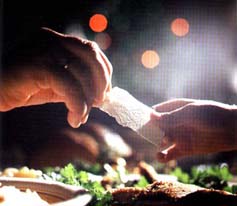
Before sitting down at the table, everyone breaks the traditional "Oplatek" (white almost transparent wafer similar to the altar bread in the Roman Catholic Church). This moment is very unique tradition for the Polish people and quintessence of the Polish Christmas. "Oplatek" is known as the bread of love, friendship and forgiveness, person who do not approached the Christmas Eve table without forgiving and forgiveness, without being able to wish everybody well with a whole hart. "Oplatek" is also sent by mail to the absent members of the family.
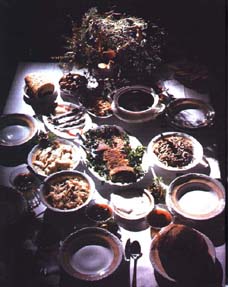
The supper (Wigilijna Kolacja) that follows is a delicious display of traditional dishes and after the whole day of feast it tastes delicious. The Wigilia is a meatless meal and usually contains twelve courses because of twelve apostles, though some families serve 13 because they include Christ in their count.
You need to try all of them if you want to have good lack in the next year. Christmas Eve menu usually contains: borch with mushroom pockets or mushroom soup, carp or pike Polish style, stewed sauerkraut, dried fruit compote, poppy seeds rolls, gingerbreads cookies, almond cookies. Poppy seeds dish is usually served to symbolize peaceful sleep, as well as honey as a symbol of sweetness and contentment.
According to myth, all people must stay around the table until meal is finish, otherwise it is said that some of the feasters would not live to see another Christmas, it also add dignity to this evening.
Polish Christmas tradition requires inviting not only the people we like, but primarily those who are lonely, sick and unhappy. With agreement in this it is customary to set an extra place waiting for lonely traveler who may knock that night on the door, or for the love ones who are far away, but may join their families in spirit.
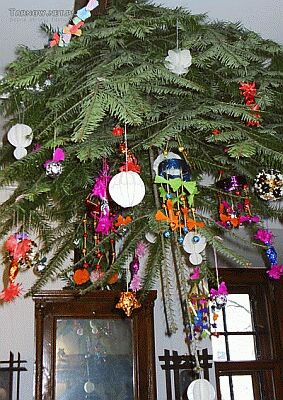
Another very interesting Polish custom is to attach Christmas tree to the celing and decorate it.
After the meal the members of the family sing Polish Christmas Carols called the "koledy" while the children wait impatiently around the Christmas tree "choinka" for the gifts to be exchanged.
Polish Christmas Carols are numerous and beautiful, especially when sung in Polish parishes at the Christmas Eve Mass. "Pasterka", which means the Shepherds Watch, and there is popular belief in Poland that while the congregation is praying, peace descends on the snow-clad, sleeping earth and that during that holy night, the humble companions of men - the domestic animals - assume voices. But only the innocent of heart may hear them.
CHRISTMAS DAY
Christmas Day is very peaceful in Poland. People rest, pray, visit relatives and friends. Christmas day dinner usually contains clear borch, turkey with cranberry sauce, hunters' Stew, baked potatoes. If company is expected, there will be an elegant torte. Bowls of nuts, sweats and candies are placed on table.
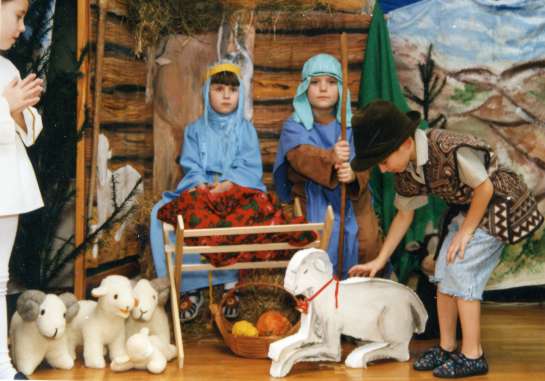
In Poland, from Christmas yang children carry on puppet shows called "Szopki" or "Jaselka" which tell story about Christmas Day.
CHRISTMAS SEASON
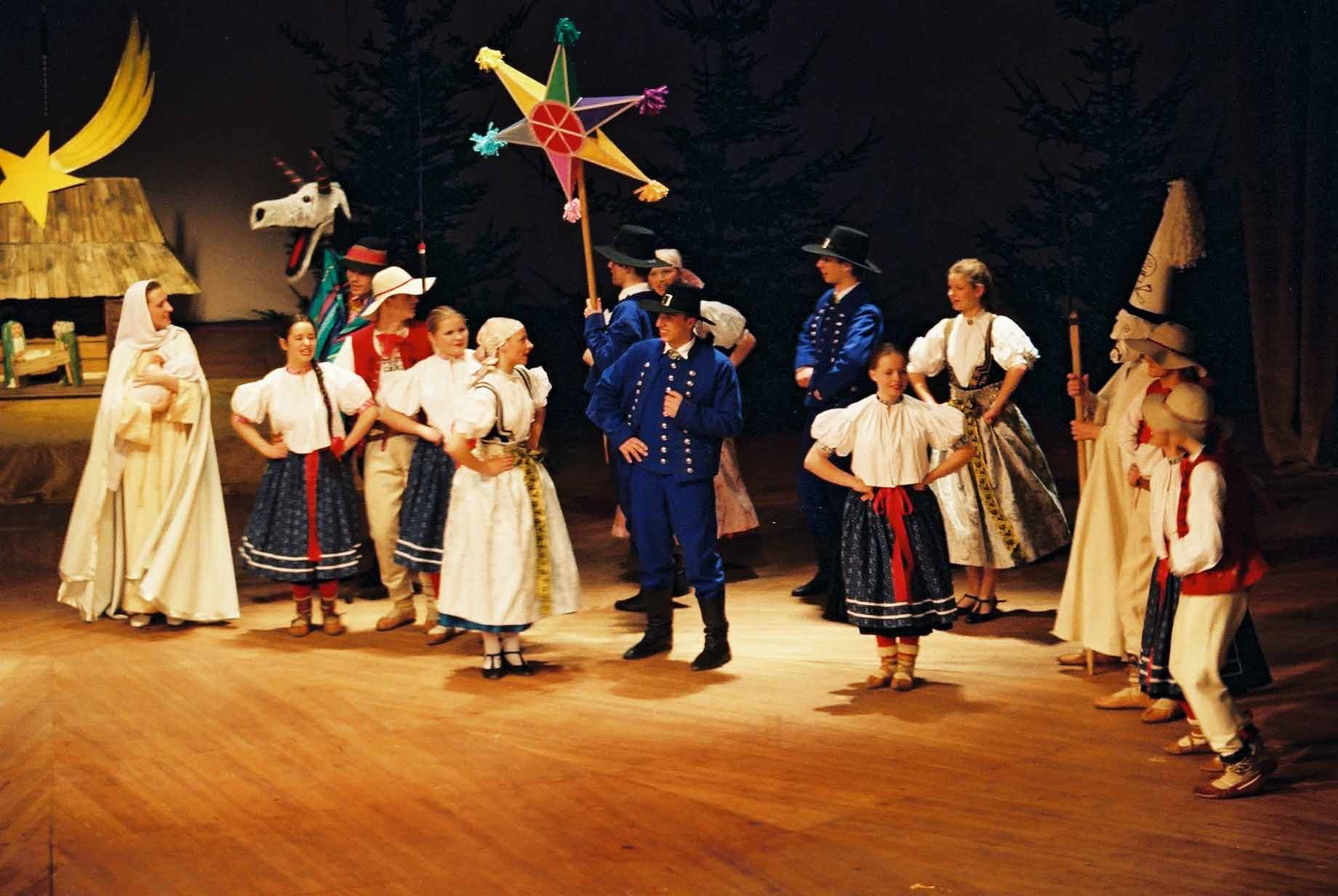
During the Christmas season, the theaters give special performances. On the feast of the Epiphany, the priest and the organist visit the homes, bless them and write over their doors the initials of the three wise men - K+M+B (Kasper, Melchior and Balthazar) - in the belief that this will spare the homes from misfortune.
The Christmas season closes on February 2, known as Candlemas Day. On that day, people carry candles to church and have them blessed for use in their homes during storms, sickness and death.